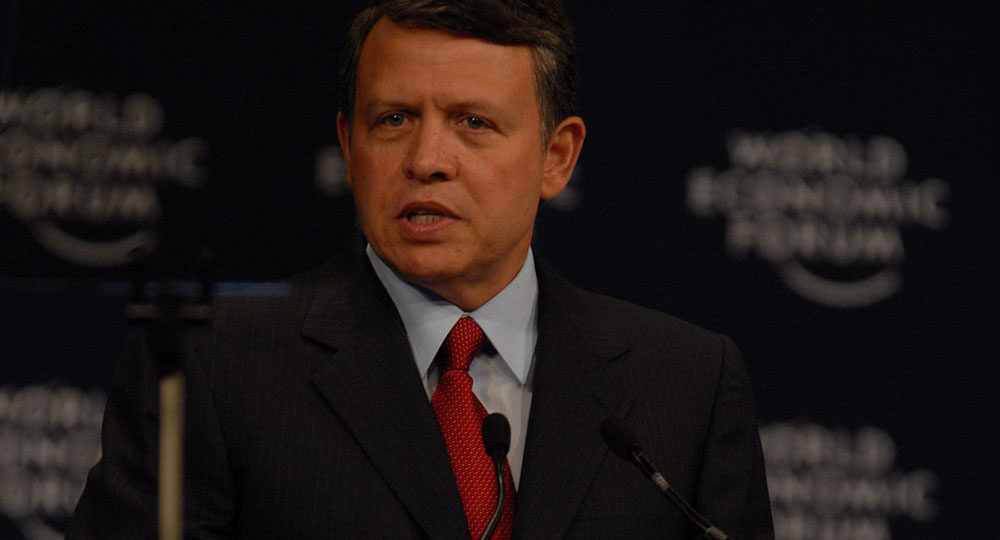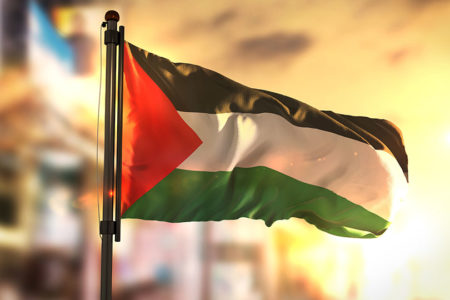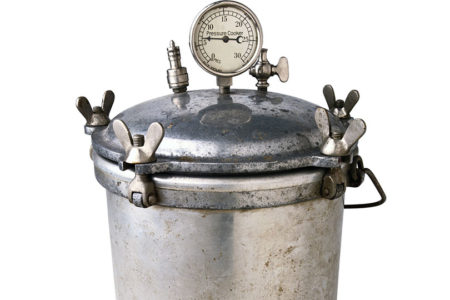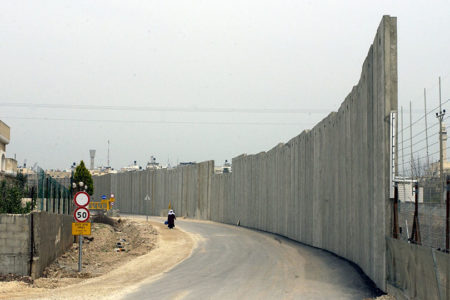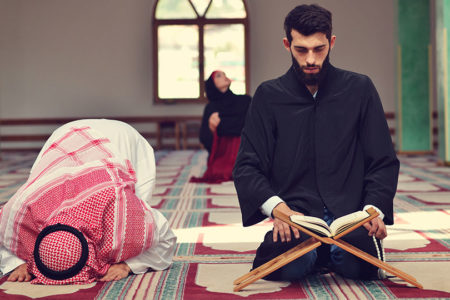Jordan’s Disengagement Connection
As the Israeli Defense Forces (IDF) in August forcibly evacuated Jewish settlers and their families from the communities where they had lived, many of them for more than 30 years, the leaders of the Arab nations watched closely. There are 23 Arab nations in the Middle East that have for years wanted the Palestinians to have their own state within the borders of the Jewish State of Israel. As they observed the Israeli pullout, they witnessed the first signs that their goal of Palestinian statehood is closer than it’s ever been.
Israeli Prime Minister Ariel Sharon’s disengagement plan was of special interest to Israel’s closest neighbor philosophically, the Hashemite Kingdom of Jordan. Jordan’s 43-year-old, reform-minded king, Abdullah II, has much at stake in the Palestinian takeover of the evacuated Gaza Strip and the plans the Palestinian Authority (PA) and the Palestinian terror group Hamas have for this area in the near future.
The son of King Hussein, who ruled Jordan as an absolute monarch for 47 years until his death in 1999, King Abdullah has the same heart as his father in his desire to bring peace between the Jewish State of Israel and the Arab nations in the Middle East. That fact was evident in Abdullah’s behind-the-scenes work recently as he prepared an initiative in which all the Arab countries would make peace with Israel in exchange for Israel promising a viable Palestinian state.
The initiative is an upgraded version of the plan proposed by Saudi Crown Prince (now king) Abdullah and adopted by the Arab League at a summit in March 2002 in Beirut, Lebanon. Jordan’s King Abdullah presented this revised initiative at the most recent Arab League summit in Algeria in March of this year.
Turmoil in neighboring Iraq, terrorism in Israel, and plots against Jordan all have King Abdullah keeping a close watch as the Palestinians take control of the disputed areas with a promise to continue their armed struggle against the State of Israel.
Understanding Abdullah
To better understand King Abdullah’s vigilance, we must remember that more than 65 percent of Jordan’s population is made up of Palestinians. The king himself is married to a woman considered to be Palestinian, although Queen Rania was born in Kuwait in 1970. Her family moved there from Tulkarm in the West Bank in 1960, while the area was still part of Jordan. King Abdullah was educated in England as well as the United States, where he went to prep school at Deerfield Academy in Deerfield, Massachusetts. His stylish wife champions rights for Muslim women and worked for Apple Computer before they were married. Abdullah realizes that economic stability comes better with peace, and he has been working diligently to bring economic prosperity to Jordan by trying to entice high-tech industries to make Jordan their business hub in the Middle East. In January of this year, the country’s official unemployment rate was 15 percent; the unofficial rate, 30 percent.
But Abdullah rules in a dangerous neighborhood. According to a recent poll by the Pew Research center, 100 percent of the Jordanians surveyed view Jews unfavorably, 60 percent support Osama bin Laden, and 57 percent support suicide bombings. Abdullah’s Western views have not endeared him to Palestinian Muslim extremists who are out to topple his government plus those of Egypt and Saudi Arabia—all longtime American allies. Egypt and Jordan have peace treaties with Israel.
In August al-Qaida terrorists fired katyusha rockets at the USS Ashland and USS Kearsarge in the Red Sea port of Aqaba in the south of Jordan, narrowly missing them but hitting a warehouse and hospital, plus Eilat in Israel. The Associated Press reported, “At least one of four other unfired missiles allegedly smuggled in from Iraq are believed to have targeted Abdullah’s beachfront palace just west of the port.” Abdullah, wrote AP reporter Jamal Halaby, is “battling an underground militancy bent on killing him.”
The king had been considering surrendering some of his powers and moving toward a European-style constitutional monarchy. But pressure from extremists and unrest among Palestinians in the Gaza Strip after the Israeli withdrawal have caused him to rethink things.
King Abdullah will continue to encourage the PA to take charge of the situation in the Gaza Strip and resume peace talks with the Israelis. In August he made trips to the United States and Russia in his quest for a Middle East peace with meaning. He also hosted a two-day conference that brought together more than two dozen Nobel laureates, including Israeli leader Shimon Peres and famous Jewish author Elie Wiesel, who survived Nazi concentration camps and whose Foundation for Humanity cosponsored the event.
They gathered in the ancient city of Petra to seek solutions to such problems as poverty, disease, and violence. King Abdullah said a “wave of reform aimed at democracy and development” is needed in the Middle East and told delegates that humanity is at a “critical crossroad’’ and that the “direction we go is especially critical for one important part of the global population: our youth.’’ In the Mideast, youth “have no memory of a time without regional conflict,’’ he said. “They see the harm as well as the hope brought by globalization.’’
King Abdullah also made clear his opposition to terrorism when he told the conference that extremism is “profoundly anti-peace, anti-progress and anti-democratic.’’ He also said true peace must provide “justice for the Palestinians” and “security for Israelis.”
Petra in Prophecy
It is interesting to me as a student of Bible prophecy that this special conference hosted by Jordan’s King Abdullah took place in the stone-carved city of Petra, a city built by Nabatean Arab nomads some 2,000 years ago. Petra is a city with a unique past and an understandable, prophetic future.
This recent gathering of Nobel laureates in Petra, plus the summer evacuation of Jewish settlers from their homes in a land that many believe was given to them by God, may mean that we are approaching the time for the Lord’s return. The land evacuated, the Palestinian people who now get the land, and the desire to destroy the Jewish state and anyone who helps the Jewish people are all factors in the last-days drama found in Bible prophecy. The people involved in these recent events are those whom the ancient Jewish prophets said would be the players in the last days. The Jewish people will be the focus of all prophetic scenarios, today and in the future. And the Palestinians constitute another group having a role in the end-times.
The Jewish people, God’s Chosen People, were promised a land that God, through the ancient Jewish prophets, told them they would possess at the time of the coming of the Messiah. The land, promised in 38 different passages of Scripture, includes the Gaza Strip and the area in northern Samaria that the Israelis evacuated over the summer.
As for the Palestinians, leading Orthodox Jewish Bible scholars believe they are the descendants of Amalek, the grandson of Esau (Gen. 36:12). These are the people whom God said He would have war with throughout all generations (Ex. 17:16).
The Jewish prophet Malachi revealed that the Edomites (all of the descendants of Esau) would one day return and rebuild; and the Lord would call their borders the “Territory of Wickedness” (Mal. 1:4). The Edomites were once headquartered in the city of Petra in Edom, the biblical name for the lower third of modern-day Jordan.
According to many Bible prophecy scholars, Petra is where the Jewish people will be housed and protected during the last half of the future seven-year Tribulation (Isa. 63:1–6; Rev. 12:6). This may well be the reason Jordan is spared from destruction during the first half of the Tribulation (Dan.11:41).
The recent IDF withdrawal from the Gaza Strip, the evacuation of the Jewish settlers there, and the transfer of that land to Palestinian control seem to be setting the stage for Bible prophecy to be fulfilled.
Add to that mix the peace efforts by Jordan’s King Abdullah in the ancient rose-red city of Petra and you have all the players and places set on the Middle East stage where the end-times drama found in Bible Prophecy will be played out.
